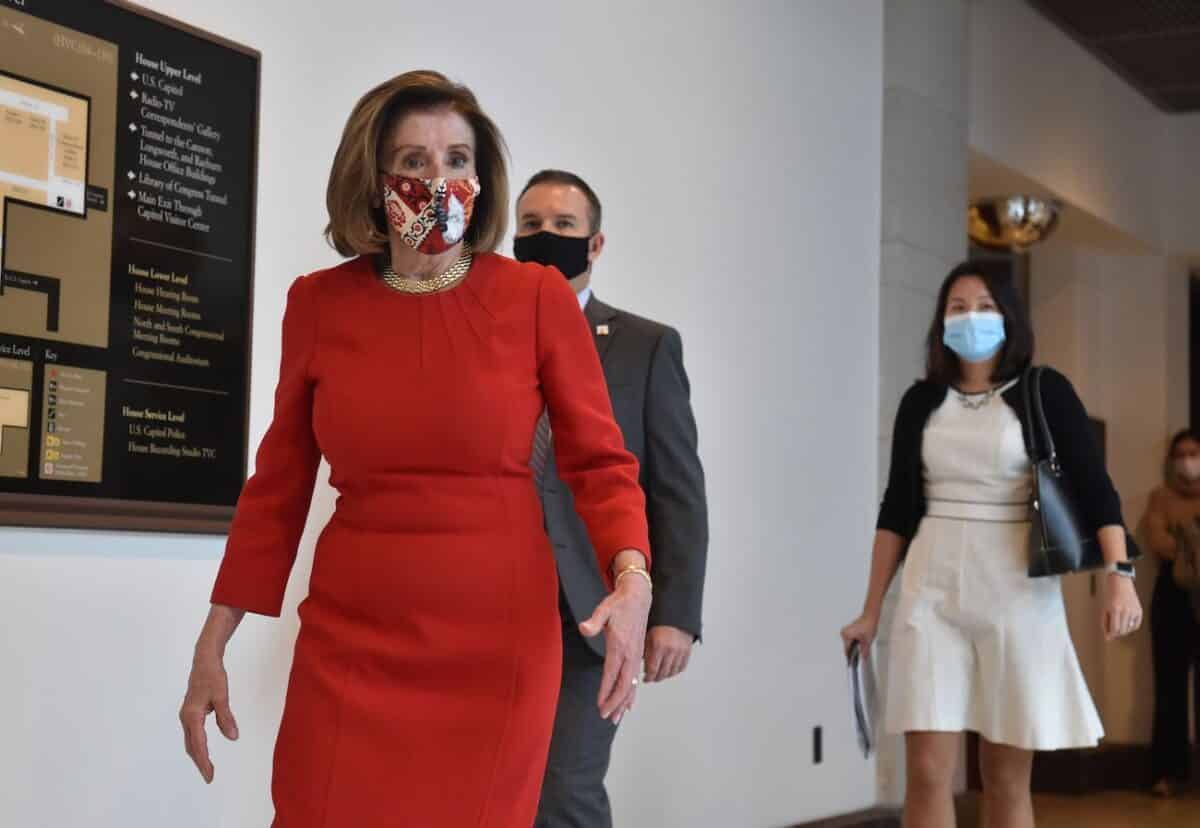The House of Representatives is expected to vote on Wednesday on a weeklong stopgap funding bill to avoid a government shutdown. The move indicates that lawmakers need more time to reach a deal on government funding, including on COVID-19 relief.
“I am disappointed that we have not yet reached agreement on government funding,” House Majority Leader Steny Hoyer (D-Md.) announced in a statement. “The House will vote on Wednesday on a one-week CR [continuing resolution] to keep government open while negotiations continue.”
Current funding is set to expire this Friday. The vote would give negotiators until at least Dec. 18 to reach an agreement on funding.
Senate Majority Leader Mitch McConnell (R-Ky.) said that the stopgap measure is likely to be taken up by the upper house.
COVID-19 Relief
No deal has so far been reached on a second major COVID-19 relief package, with negotiations having played out for months.
“We have seen some hopeful signs of engagement from our Democratic colleagues. But we have no reason to think the underlying disagreements about policy are going to evaporate overnight,” McConnell told the Senate floor.
“The nation needs our Democratic colleagues to resist the temptation to play brinkmanship with long-settled policy issues or push poison pill riders that they know would tank the process,” he also said.
Arguing for a “targeted” package, McConnell said lawmakers were now in agreement on three points—extending unemployment benefits, helping small businesses, and funding vaccines. He said that lawmakers should “make law in the many places where we have common ground” and drop other demands.
McConnell has blamed Democrats for not having been able to pass more stimulus in recent months, pointing to a list of demands they wouldn’t compromise that extended beyond addressing immediate needs during the pandemic.
“There is no actual reason why the fates of commonsense policies like a second round of the job-saving Paycheck Protection Program had to be linked to the fates of fringe proposals like stimulus checks for illegal immigrants,” he said at the time. “There is no reason why the fate of funding for vaccine distribution or extending unemployment aid or legal certitude for universities should have been tied to radical ideas like paying people more not to work than essential workers earn on the job. These linkages have been totally arbitrary.”
On Dec. 3, he said that he was hopeful for compromise on a revised COVID-19 stimulus package. President Donald Trump is known to be in support of the COVID-19 relief package that McConnell put together.
“Compromise is within reach. We know where we agree. We can do this. Let me say it again. We can do this and we need to do this. So, let’s be about actually making a law,” he said on Dec. 3.
Senate Democrats in September blocked a $300 billion stimulus and in October blocked a $500 billion package, saying they didn’t include enough provisions. Meanwhile, McConnell declined to bring the $2.2 trillion HEROES Act, which the Democrat-majority House passed earlier this year, to a vote, arguing it was too broad and included unnecessary add-ons.
The White House went up to about $1.9 trillion during the height of the negotiation process, although the scope of the bill differed to the Democrats’ $2.2 trillion offer. Both Pelosi and the White House have accused one another of stonewalling.
Bipartisan Bill
On Dec. 1, a bipartisan group of House members and senators released a proposal for a $900 billion COVID-19 relief package. The bill has the support of 25 Democrats and 25 Republicans. This proposal does not include another round of direct payments to Americans.
Sen. Mark Warner (D-Va.), who is a member of the bipartisan group, told CNN in an interview Dec. 6 that a draft bill to be released soon. The $900 billion proposal “will give targeted relief for the unemployed, for people in food insecurity, rental assistance, small businesses that have run out of their PPP funds,” he said.
Sen. Josh Hawley (R-Mo.) said he wants to see a package with a stimulus check.
“I’d want to see that included,” Hawley told NBC News last week. “I don’t know why we wouldn’t give assistance directly to families and individuals who need it,” he said.
“I’m not sure why it’s controversial,” he added. “I’m a little baffled by it.”
Sen. Bill Cassidy (R-La.), told “Fox News Sunday” that stimulus checks could be part of a subsequent package but that this bill would focus on the most urgent concerns.
“This is not a stimulus bill. It is a relief bill. And it is something for the next three or four months to help those in greatest need,” Cassidy said. “There may be a stimulus check, but that would be part of a different piece of legislation.”
Zachary Stieber, Jack Phillips, Tom Ozimek, and Reuters contributed to this report.



